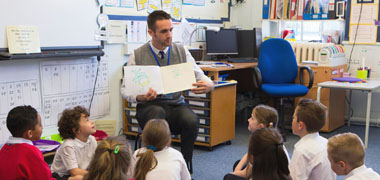
This role has a moderate level of AI exposure. AI can enhance efficiency for some tasks, but this job still relies on human skills and decision-making.
Explore all careersAn Aboriginal and Torres Strait Islander Education Worker supports Indigenous students in classrooms and educational activities, fostering learning and cultural understanding.
In Australia, a full time Aboriginal and Torres Strait Islander Education Worker generally earns $960 per week ($49,920 annual salary) before tax. This is a median figure for full-time employees and should be considered a guide only. As you gain more experience you can expect a potentially higher salary than people who are new to the industry.
 Courses.com.au Team
Courses.com.au Team
The number of people in this role has remained steady in recent years. There are currently 2,000 people working as an Aboriginal and Torres Strait Islander Education Worker in Australia compared to 1,900 five years ago. Aboriginal and Torres Strait Islander Education Workers may find work across all regions of Australia.
Source: Australian Government Labour Market Insights
 Courses.com.au Team
Courses.com.au Team
A Certificate III or IV in Aboriginal and Torres Strait Islander Education is a great qualification if you’re hoping to start work in this industry. You’ll learn how to support students in the classroom while encouraging their sense of culture and identity. You could also further your studies with a Diploma of Aboriginal and Torres Strait Islander Education.
 Courses.com.au Team
Courses.com.au Team
Browse occupations related to Aboriginal and Torres Strait Islander Education Worker



The availability of Aboriginal and Torres Strait Islander Education Worker courses in Tasmania offers an essential pathway for individuals passionate about education and community support. These courses are tailored to equip learners with the skills and knowledge needed to effectively support Aboriginal and Torres Strait Islander students in educational settings. With a commitment to preserving and promoting cultural heritage, these courses play a crucial role in fostering inclusivity and understanding within the broader education system in Tasmania.
Among the courses available, the most notable is the Diploma of Aboriginal and Torres Strait Islander Education (11214NAT). This qualification is particularly geared towards experienced learners who wish to deepen their expertise and advance their careers in education. The diploma not only covers pedagogical principles but also integrates culturally responsive practices that are vital for working with Indigenous communities, ensuring that education is respectful and relevant.
For those interested in exploring a broader range of educational opportunities, Education and Training courses are also available, which encompass various specialisations and strategies to enhance teaching methodologies. Furthermore, the Education Support and Assistance category allows prospective students to gain insights into roles that support educators and learners alike, especially in contexts involving Aboriginal and Torres Strait Islander communities.
Enrolments in these courses can significantly impact the learning experiences of Aboriginal and Torres Strait Islander students in Tasmania, contributing to improved educational outcomes. By understanding and addressing the unique challenges faced by these communities, education workers can play an instrumental role in guiding students towards success. Through professional development, education workers can also become agents of change, promoting respect for cultural diversity and enhancing educational engagement within their communities.
As the demand for qualified Aboriginal and Torres Strait Islander Education Worker courses in Tasmania continues to grow, individuals interested in making a meaningful contribution to education and community development are encouraged to explore these opportunities. Each course offers valuable insights that align with the needs of Tasmania's diverse educational landscape, ensuring that learners are well-prepared to support and uplift Indigenous students in their educational journeys.